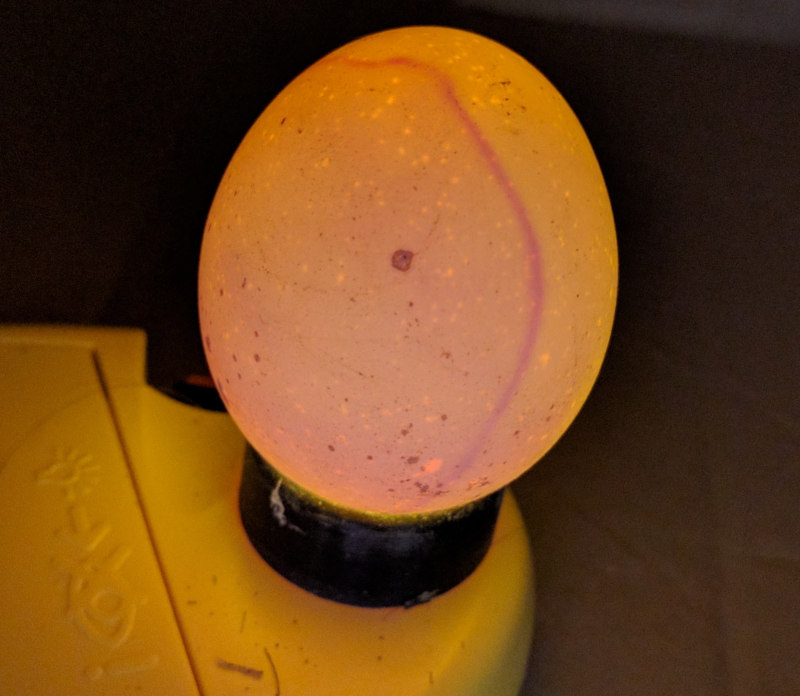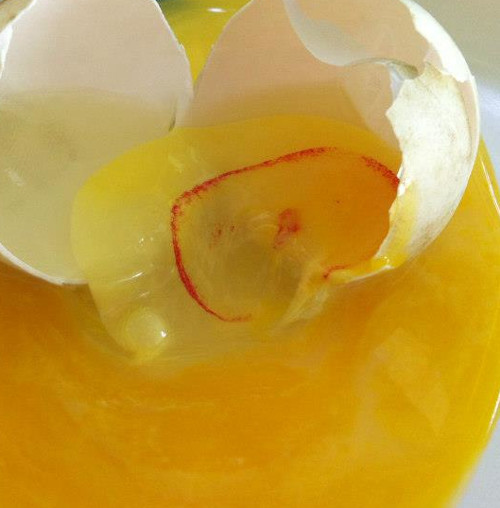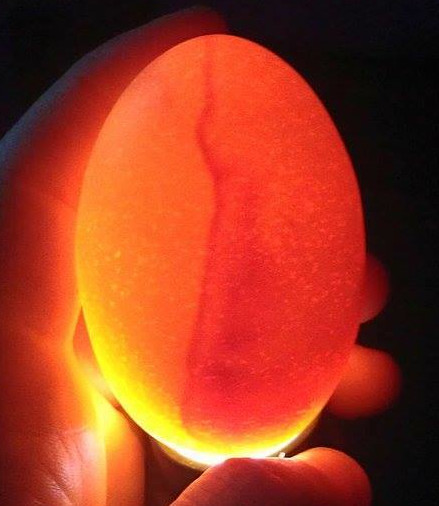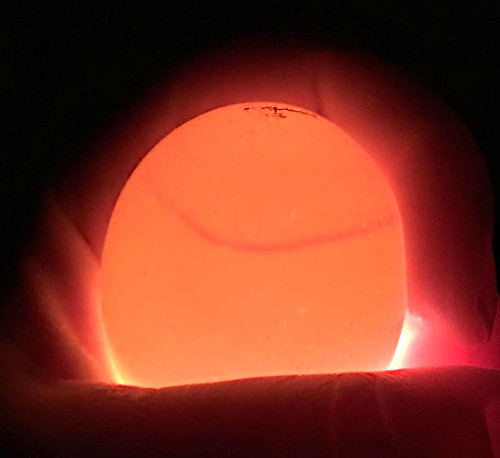Blood rings in incubated eggs and how to avoid them.

What is a blood ring?
The blood ring inside an incubated chicken egg is caused when the embryo dies at a very young stage and the blood vessels break down and release their contents and the blood settles into a circle.
Below: This is what a blood ring looks like if you break open the egg.

A blood ring inside your egg means that the egg was fertile and began to develop, but then died early in the incubation cycle. The blood that was contained in the embryonic vessels leaks out to form a ring just under the shell.
What does a blood ring look like?
A blood ring looks like a thin wavy single blood vessel 5 mm under the shell of the egg that normally is a complete circle inside the egg but not always.
Below: A vertical blood ring.

It can be anywhere in the egg but is most common around the middle.
What causes blood rings in chicken eggs during incubation?
Blood rings have several causes and condition under which they are more likely to occur.
- Bacterial infection.
- Poor parental nutrition.
- Shaking eggs or rough handling in transit.
- Badly chilled eggs during storage.
- Eggs stored too warm.
- Temperature too high or low or Temperature fluctuation at earliest stage of incubation.
- Eggs stored for too long.
Storing and selecting eggs properly before you begin to incubate will make blood rings much less likely.
Below: Blood rings are not always easy to see.

How to avoid blood rings?
There are a few precaution you can take to avoid getting blood rings during incubation.
- Collect the eggs regularly during the day.
- Protect against extremes of temperature and store at a stable temperature.
- Protect from extremes of humidity and draughts.
- Do not store egg for extended periods and set them within 7 days for the best results.
- Use accurate equipment and keep two thermometers.
- Don't knock or shake eggs or subject them to violent movements that can tear membranes.
- Don't candle them too soon, leave it till day 10.
- Don't incubated eggs collected out of season.
Will eggs with blood rings explode?
As some blood rings are cause by bacterial contamination it can make the eggs more likely to explode so they should be removed as soon as you find them.
The bacteria so will continue to grow and so will the pressure inside the shell.
How many eggs will get blood rings?
From my records, I get around 1 in 18 eggs with a blood ring or between 5 and 6%.
Some hatches I get none and some I seem to get loads. I get more at the beginning and end of the hatching season or if I use eggs from very young or very old hens.
Is it possible for there to be a blood ring in an egg with a living embryo?
It is possible to have a living embryo and a blood ring inside the same shell. This happens when you incubate a double yolker and one embryo dies.
